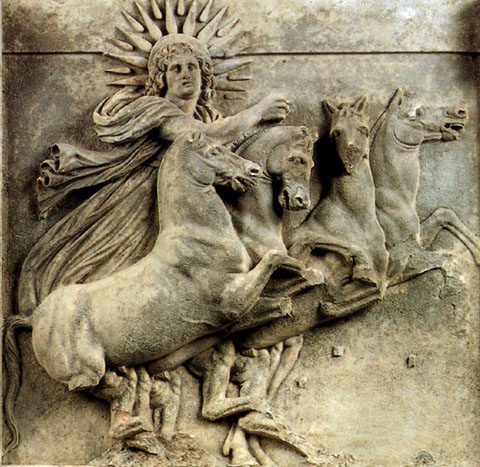Find out more about how The Lecture List works.
Coronavirus situation updateOur lecture organisers may or may not have had time to update their events with cancellation notices. Clearly social gatherings are to be avoided and that includes lectures. STAY AT HOME FOLKS, PLEASE. |
Find out what you can do to keep The Lecture List online
|

An survey of Platonic virtues as an ascending scale.
The dialogues of Plato were at one time thought to constitute a complete moral education. In keeping with Plato's own view on this subject, which he outlines in the Republic, such education was thought to be of utmost importance not only in developing the integrity of the individual but also maintaining the integrity of society as a whole. Plato’s identification of the moral virtues rests on his characterisation of the human soul, which he thought acted through three faculties or parts: a part energised by reason, a part energised by raw desire, and a ‘spirited’ part energised by wholesome pride or ‘anger’ typically defined in relation to the other two parts. Each part unfolded its potential through its own virtue (wisdom, temperance and fortitude) and when combined harmonized through a fourth, justice. These four virtues became known as the ‘hinge’ or cardinal virtues. They were elucidated by almost 900 years of the Platonic tradition before being adopted and passed on to the Catholic church. Aristotle’s ethics was particularly influential in establishing this tradition of ‘virtue ethics’ because it was focused on its practical application. The neoplatonists, (Plotinus, Porphyry, Proclus, Iamblicus, Damascius, and Olympiodorus), were not only interested in how these virtues were expressed in practical or ‘civic’ activities, but also in more inward activities like contemplation and meditation. Compelled by the Socratic invocation to ‘know thyself’ not only as a human being in the world but also as a soul within a vast hierarchy of spiritual being, these four virtues were characterised differently depending on the level of being toward which they were focused. This resulted in a rich model of what we might call the inner dynamics of spiritual development. It also led to a course of Platonic studies aimed at the development of moral character. The study of Plato’s dialogue the First Alcibiades was pivotal in this curriculum because it was seen as the introduction to and therefore the foundation of the student’s moral development. It illustrates the crucial first step of turning inward, which Socrates characterises in the dialogue as recognising that one doesn’t know but one wants to know. We will look at an outline of this framework of virtues, see how they were integrated into the cycle of Platonic dialogues and discuss its implications.
No previous experience of formal philosophy is required.
Entrance in free, but donations between £3-5 will be welcomed.
A PDF download of the extract we will be reading is available on our website together with further details of this and other Prometheus Trust's activities: www.prometheustrust.co.uk (the PDF is on the "London Monday Evenings" page.)
Speaker(s): |
|
|
|
Date and Time: |
13 August 2018 at 7:30 pm |
Duration: | 1 hour 30 minutes |
|
|
Venue: |
Cecil Sharp House |
Organised by: |
The Prometheus Trust |
|
|
Tickets: |
Donation |
Available from: |
|
Register to tell a friend about this lecture.
If you would like to comment about this lecture, please register here.
Any ad revenue is entirely reinvested into the Lecture List's operating fund